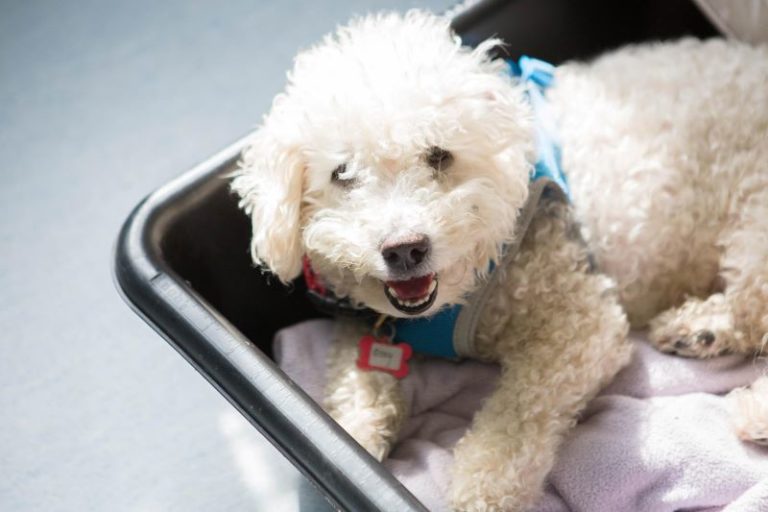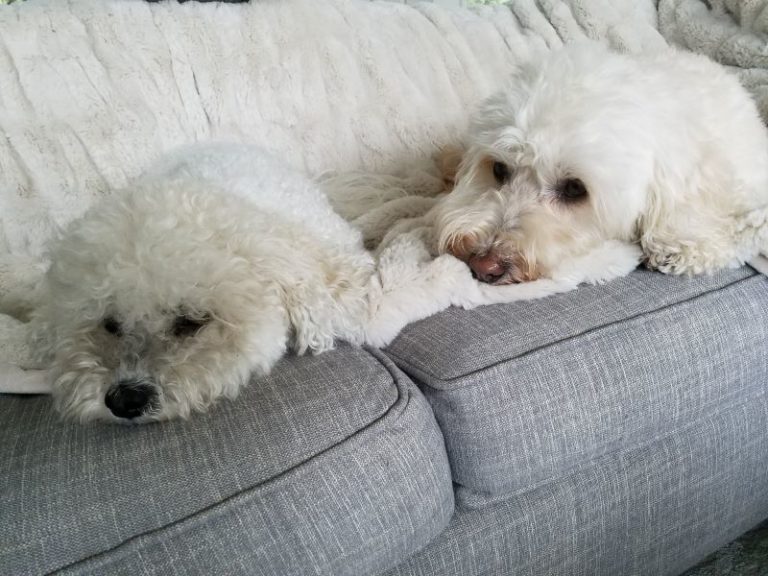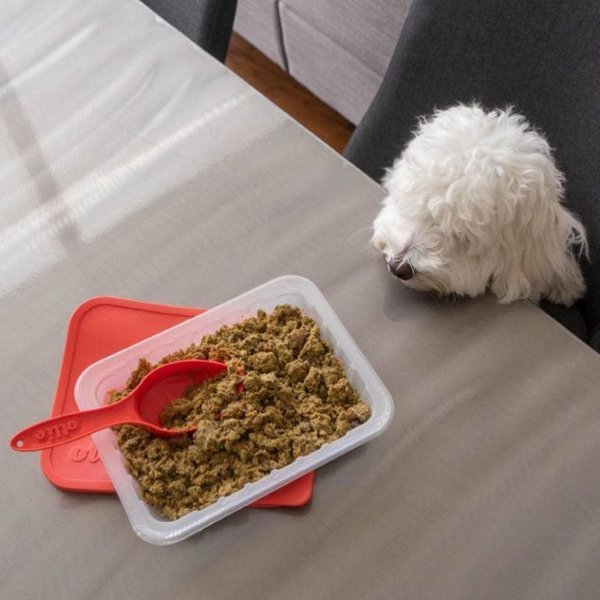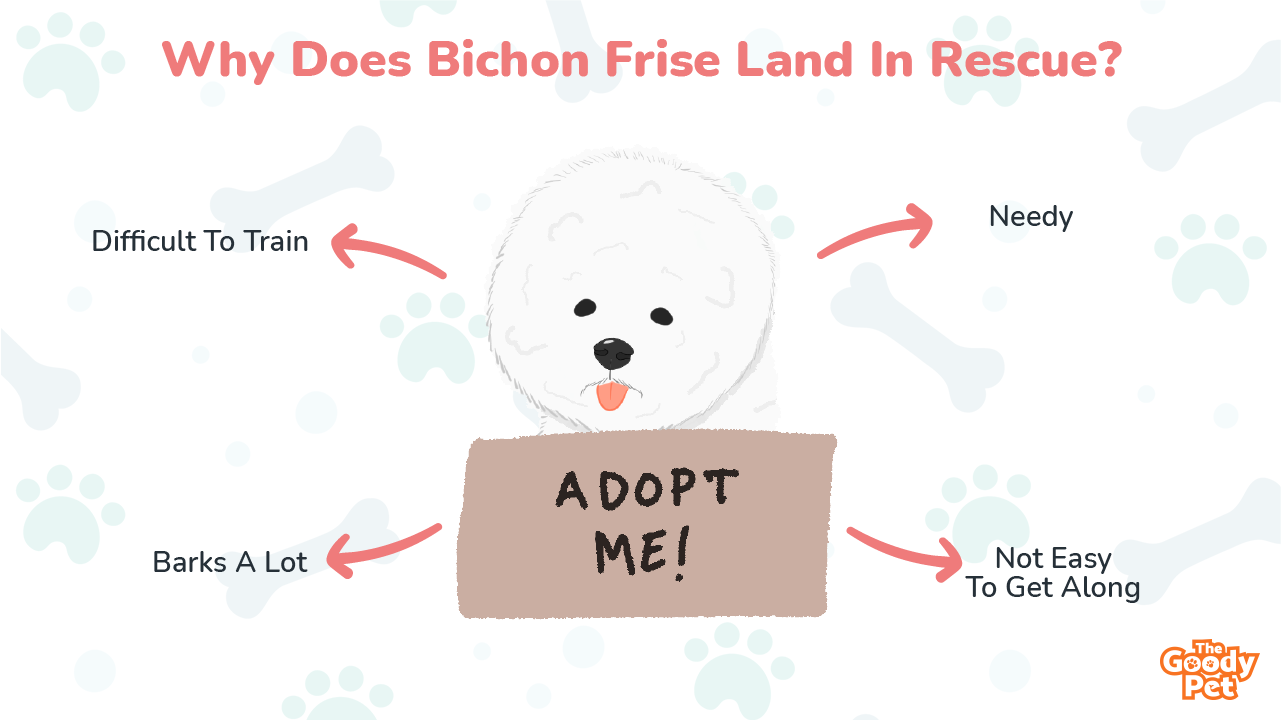Bichon Frises are easily some of the cutest and cuddliest dogs out there. They are also super playful and just seem to have it all going for them as the ideal family pet. Despite the appeal of these little pooches, they are among the most commonly abandoned breeds, which does not make much sense on the surface level. So, why does Bichon Frise dogs land in rescue so often?
Bichon Frise dogs land in rescue centers a lot due to their often problematic temperaments. One of the biggest challenges of owning a Bichon is having to deal with their inability to get along with strangers and children. They are also known to bark a whole lot and can be notoriously difficult to train.
They may be adorable, but Bichons clearly come with their fair share of challenges. However, this does not mean that they do not deserve some love, patience, and accommodation. In fact, all you have to do is to understand them and their needs, and you will get to enjoy the best that this breed has to offer.
In the sections below, we will look at what you have to expect with a Bichon Frise in your home. This includes everything from their personality traits to their care needs. That way, you know exactly what you are getting yourself into, and you are guaranteed the best experience.
Temperament Of A Bichon
Do not let the size of these little beauties fool you. They pack quite a punch as far as personality is concerned. Many dog owners who purchased a Bichon often give them up to rescues due to the difference in expectations of their temperament.
Here are 4 of their most common defining traits and what they mean to you as the owner.
Affectionate And Borderline Clingy

Bichons love to be loved and as the primary caregiver they will expect the most from you. They love to cuddle and hang out and this is how they show their interest and affection. Though endearing, this can be problematic when you have to leave for work or errand as they don’t like to be left alone.
Very Feisty
Bichons also get sassy and feisty. They like things done their way and for their convenience. If you do not assert dominance, the little pooch will walk right over you and turn you into their servant.
Gentle
Bichons can get really aggressive when scared, but these episodes are few and far between. For the most part, they are gentle and loving dogs who do not love trouble. They especially get along well with other dogs and even children. However, they have been known to snap at strangers, including kids, so make sure to socialize with them properly.
Loud
Bichons are known for barking excessively, and this can be super annoying for you as the dog owner. They do it for all sorts of reasons, from anxiety to sheer boredom. Fortunately, they are easy to train, and with time, you can get them to ditch the frustrating habit.
Why Are Bichon Frises So Needy?
Bichons are quite clingy, which is not always a good thing. It is all fun and cuddles until you have to deal with a whiny little mess of a doggy that will not let you go anywhere without them. This is something embedded deep into their personality, and in order to deal with it, you have to understand what makes them act that way.
First off, Bichons tend to be jealous. They do not like seeing their humans show attention or affection to anyone or anything else. It could be another animal, human, or even household chores. They tend to get really disruptive when they feel threatened in such cases and may turn to excessive barking or even attacking the object of their envy.
Another reason why they are so needy is the fact that Bichon Frises are not very independent. Though they are intelligent, Bichons love to have most things done for them and therefore grow to rely on their caregivers for a lot more than they should. This actually makes it problematic to leave Bichon Frises alone.

Your Bichon Frise may also be acting all needy because they are suffering from separation anxiety. It is a highly sensitive dog breed that is easily traumatized by things like early separation from their litter. This will cause problems later in their life where they grow to feat any form of separation including sleeping in separate rooms.
Bichons are also very needy when it comes to physical contact. They love to cuddle and get petted all the time, which has been shown to release happiness hormones in their brains. You will therefore observe clingy behavior with the little furball snuggling up to you whatever chance they get.
Is A Bichon Frise Easy To House Train?
The Bichon Frise breed is known for being difficult to house train. They tend to get stubborn and easily distracted, whether you are working on discipline or simple housebreaking. However, this is often a result of wrong training techniques and little patience on the part of you as the owner or trainer.
See, the reality is that these dogs are actually intelligent. They, therefore, grasp concepts easily and have a good understanding of what is expected of them. In fact, with proper technique, you can have your furry, white beast adequately housebroken within no time.
One of the most important aspects of good technique when training a Bichon Frise is the power of rewards. These needy little doggies love to be doted upon and will do whatever it takes to get your approval and their paws on those fun little treats.

This will come in particularly handy if you are finding it hard to potty train your Bichon. Just throw them a treat or take time to pet and cuddle them after they go in the right place and at the right time. With time they will see the connection and get with the program.
It is also important to factor in the timid and sensitive nature of this dog breed. This means that they do not respond well to harsh reprimanding during training. So if you punish them for getting something wrong, you will only make matters worse as they often just end up regressing and becoming less impressionable.
How Often Should I Bathe My Bichon? Grooming Needs Of A Bichon
Proper grooming is absolutely important when raising a Bichon Frise. They stand out with their double coat and thick fur cover. This can hide all sorts of nastiness, from dead skin to things like fleas and general dirt. For this reason, it is easy for Bichons to smell. Therefore, you have to be really intentional and consistent with your grooming routine for your sake and for the dog’s own benefit.
A Bichon should have a bath at least once every 1 to 2 weeks. If they have shorter fur, you can push this to once every 3 weeks, depending on how playful and how much outdoor time the dog gets.
Invest in high-quality cleaning products, in which case the Wahl White Pear Brightening Pet Shampoo is a fantastic option. The formulation helps with odor control, conditioning of the fur, and soothing or irritated skin. It is also ideal for maintaining the shiny and bright coat that makes these dogs so beautiful.
Bichons, fortunately, do not shed a lot. However, their fur does easily get tangled, and in addition to looking shady, this entanglement may harbor dirt and odors. It is this hypoallergenic attribute that makes it so popular among potential dog owners. It is thus important that you schedule regular brushing, in which case 2 to 3 times a week should be enough.
In addition to washing and brushing, your Bichon will need occasional full grooming every 4 to 8 weeks to keep that wild mane tamed. You could do it yourself at home with quality tools like the DRGSKL Curved Grooming Scissors. These offer a clean and precise cut while still protecting the pooch from injury with the curved edge design.
How Long Do Bichons Live For? Health Problems Of A Bichon
Bichon Frises have a lifespan of between 12 to 15 years. This is quite long in the dog world and can be attributed to the breed’s overall good health status. Despite this, they do have a few illnesses they often deal with.
The most common are allergies. Bichons are allergic to a number of things, including fleas, chemicals, pollen, dust, and so much more. These usually present either as respiratory allergies with sneezing and runny noses or as skin reactions with dermatitis.
As a small dog breed, Bichon Frise dogs also suffer from skeletal issues due to their build. The most common here is patellar luxation, where their knee bones get loose and cause serious instability and pain. They also suffer from deteriorative hip diseases that seriously affect their mobility.
As the Bichon gets older, several age-related illnesses also start to crop up. These include cataracts which affect vision and could lead to trauma. Fortunately, it is quite easy to fix with eye surgery. They also may suffer complications of long-running congenital heart diseases.
Despite being so active, Bichons do not have the best metabolism. As a result, they may suffer from metabolic imbalances leading to issues like diabetes and obesity. This is more often than not related to their diet.
Speaking of diet, the severity and prognosis of a lot of these problems that Bichons face depend a lot on nutrition. You could therefore help mitigate some of the problems with simple good nutrition.
Royal Canin Bichon Frise Adult Dry Dog Food, for example, is specifically formulated for Bichons. It is good for coat health and maintaining a healthy weight.
Nootie Advanced Hip & Joint Soft Chews, on the other hand, will come in handy for dealing with bone and joint issues. For this purpose, it contains compounds like glucosamine, chondroitin, and hyaluronic acid. It also has turmeric to relieve inflammation.
Related Questions
How Many Hours A Day Do Bichons Sleep? These furry little buddies definitely love their sleep and can nap between 12 to 14 hours every day. How much rest they get depends on their level of activity; the more playtime they get, the more they sleep. Age also plays a role in determining the hours of sleep the dogs get. In fact, young pups can sleep as much as 18 to 20 hours in a day.
Are Bichon Dogs Smart? Bichon Frise dogs are actually considered quite smart and are ranked 78th smartest breed out of a list of 138. This makes them easy not only to train but to live with in general. However, their emotional volatility may lead them to do some pretty silly things that definitely will not earn them intelligence points.
How Old Is The Oldest Bichon? Bichons typically have a lifespan of between 12 to 15 years. However, there have been reports of some living up to 21 years old. The oldest confirmed case in record is 18.5 years. This was a Bichon named Sammi Calvetti from Illinois, who died of old age after a long and happy life.





